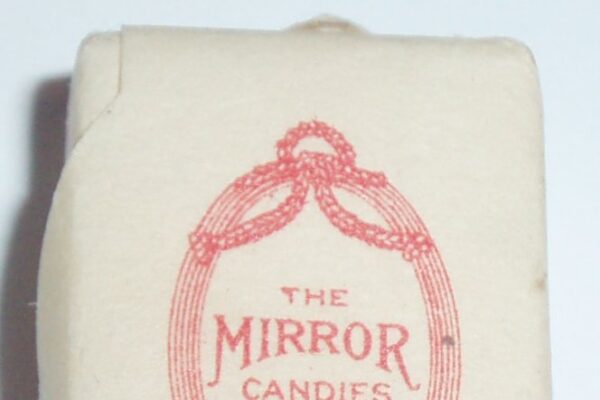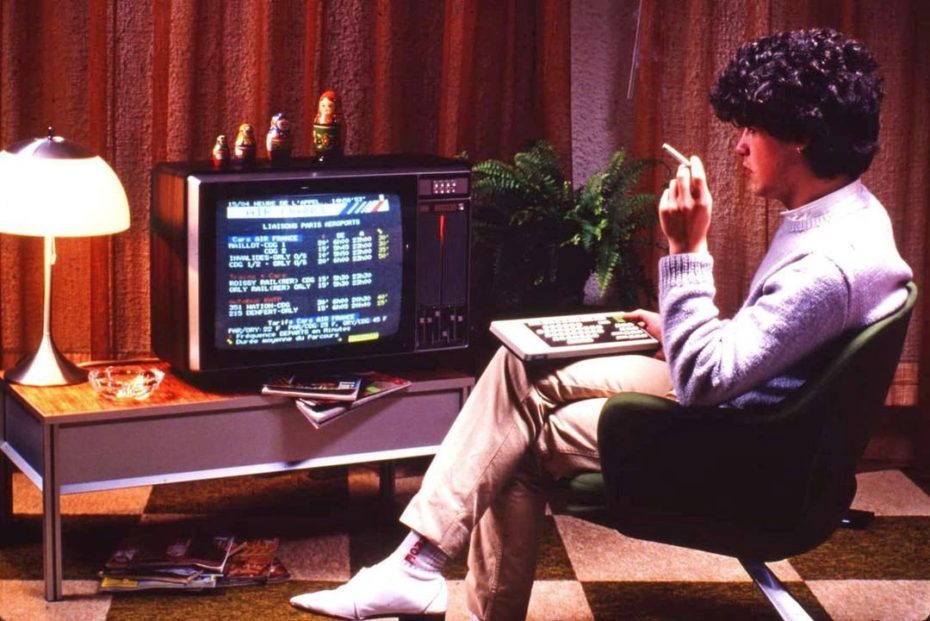
When the world wide web entered our homes in the mid 90s, the French must have been feeling a distinct sense of dejá vu. After all, anyone in France with a telephone had been online an entire decade before the internet came along. From 1978 to 2012, there was Minitel, one of the most successful pre-World Wide Web online services; a “proto-internet” to which more than half the French population had access. By 1982, twenty-five million people could get 24-hour news, buy online from mail-order retail companies, make travel reservations, invite friends to birthdays, check their stock prices, chat, game, do their banking, and yes, even do cybersex.
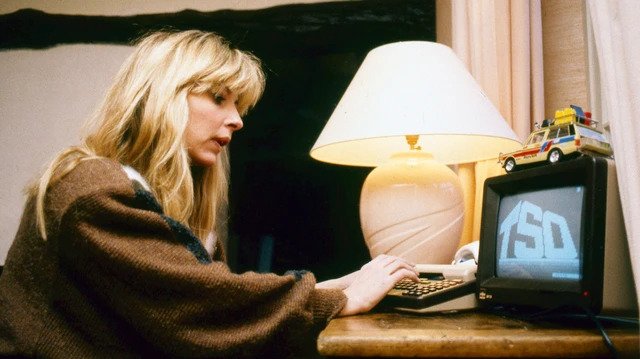
Created by a telecoms engineer, Gerard Thery, and first rolled out experimentally in the region of Brittany, Minitel’s primary raison d’etre was to reduce the cost of printing phone books, cut directory assistance personnel payroll, and increase usage of the country’s 23 million phone lines. In 1982, every household with a phone line was ready to be shipped the rudimentary beige computer and begin the online adventure. In fact, the Minitel terminal was free to acquire, and if France Telecom didn’t send you one, you just had to go pick one up at the post office.
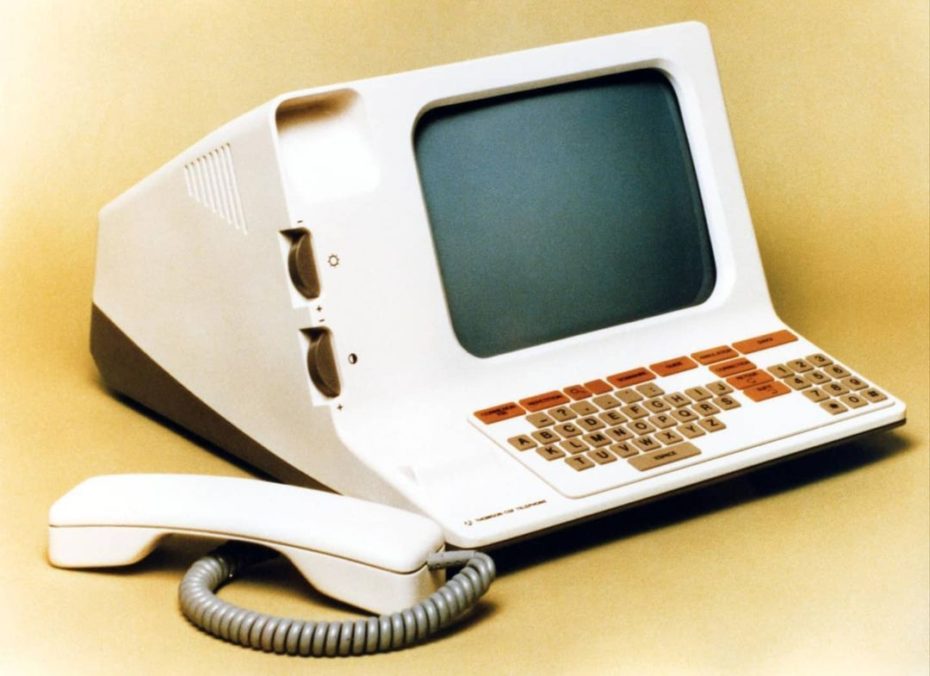
There were three different levels of services, including one free level with which the phone book and other public information were accessible from. In 1984, the government began allowing developers to create services for Minitel, like an early predecessor to the App Store. Users could pay with credit cards for specific services of their choosing or be charged for their surfing time in their monthly phone bill. Some of the most popular “apps”? Messaging and gaming services. In 1985, both activities accounted for 42% of the traffic. Perhaps to no surprise, the most lucrative were the Minitel Rose services, essentially an online world of “sexy” adult chat rooms, the forerunners to today’s Match.com and OKCupid, where people could have a good time talking to strangers online for a fee.

Developers were immediately drawn by this opportunity. French telecoms billionaire and co-owner of the newspaper Le Monde, Xavier Niel, made his first fortune at just 24 years of age when he sold his first company, a Minitel Rose sex-oriented chat service.
As always, there were many more males than females interested in roaming said chatrooms, so jobs emerged where people were paid to pretend to be women and keep men connected as long as possible while paying an average of 1.25 Francs a minute. For many students looking to make some extra cash, it sure beat a job at McDonald’s. Here’s a strangely fascinating interview with Jean-Marc Manach, the firsthand story of a guy who made a living in the early ‘90s posing as a woman in these chatrooms.
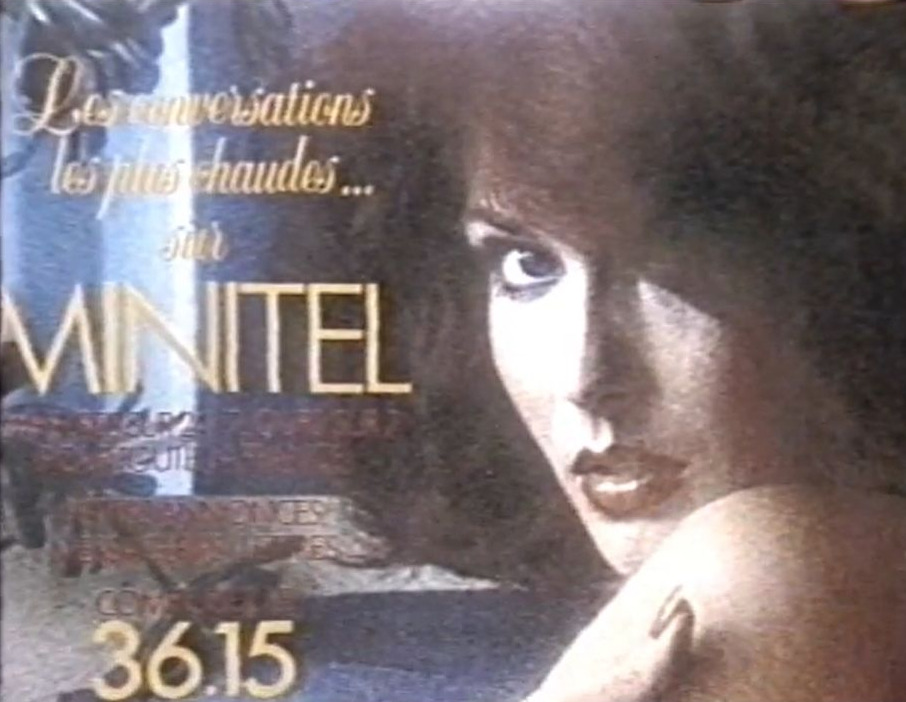
The Minitel computer terminal consisted of a text-only black and white screen with a built-in keyboard and modem, all packaged neatly into a single plastic tabletop unit. Graphics were pretty basic but the modem downloaded at 1200 bit/s and uploaded at 75 bit/s, which was pretty fast for the time. Later on, MInitel offered colour-screen upgrades as well as printing accessories. In order to connect, using Minitel’s integrated modem, you dialled a short number with a code connecting to a videotext access point, which in turn connected digitally to the destination servers of various companies existing on the network. For example, 3611 was the White/Yellow Pages and “3615 SNCF” was for train timetables and ticket reservations services etc. French advertising billboards at the time would often only provide their Minitel codes to encourage customers to find them online, similar to how brands today only advertise their “.com” addresses or social media handles.
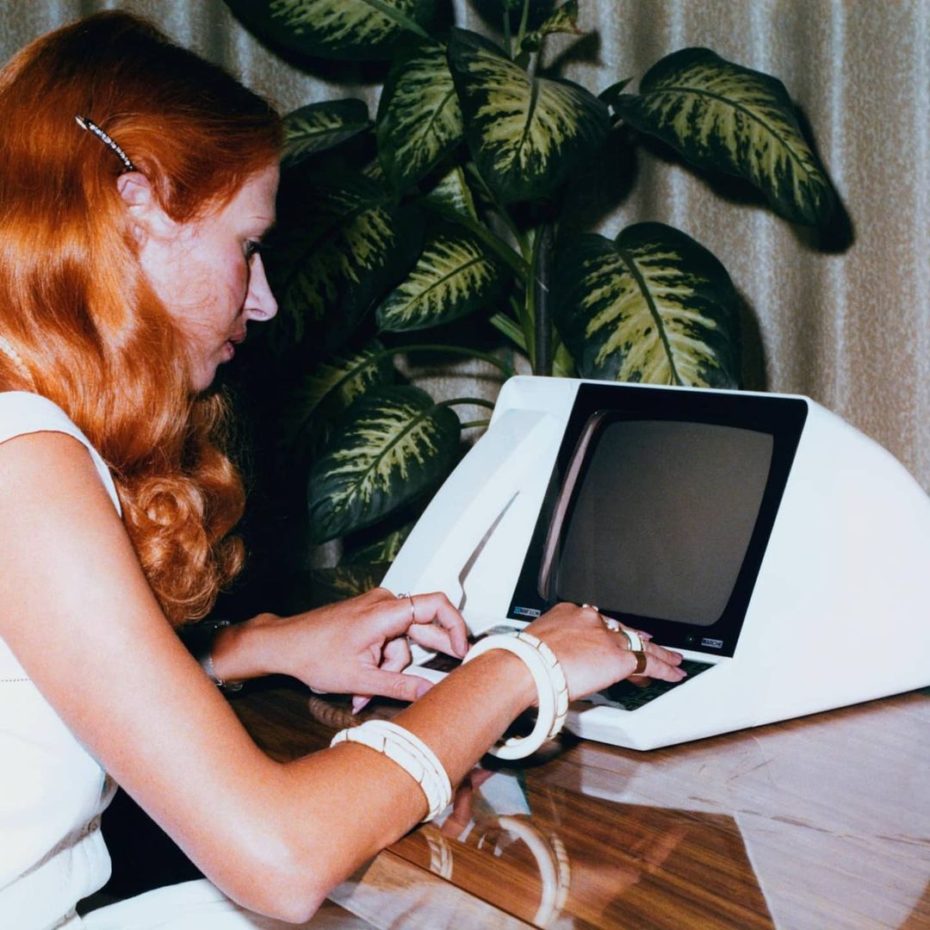
Much like the first home computers, there was generally one Minitel terminal per household for all the family to use. A generation of students found out what universities they would attend by logging on to retrieve their exam results. Here’s a television commercial in which a couple connect to a relative’s wedding registry online and browse the remaining gifts…
The telephone-line based network was so easy to use and became so wide-spread that it was even used to coordinate major national strikes in the 1980s. Minitel became such a source of pride that French President Jacques Chirac famously said in 1997, “Today a baker in Aubervilliers knows perfectly how to check his bank account on the Minitel. Can the same be said of the baker in New York?”
In 2009, France Telecom claimed that the Minitel network still had 10 million monthly connections. Ironically, the service was also blamed for France lagging behind other countries in adopting the internet as we know it today. While the French government was pushing its own technology, consumers didn’t see why they should invest in a new computer to do the same thing.
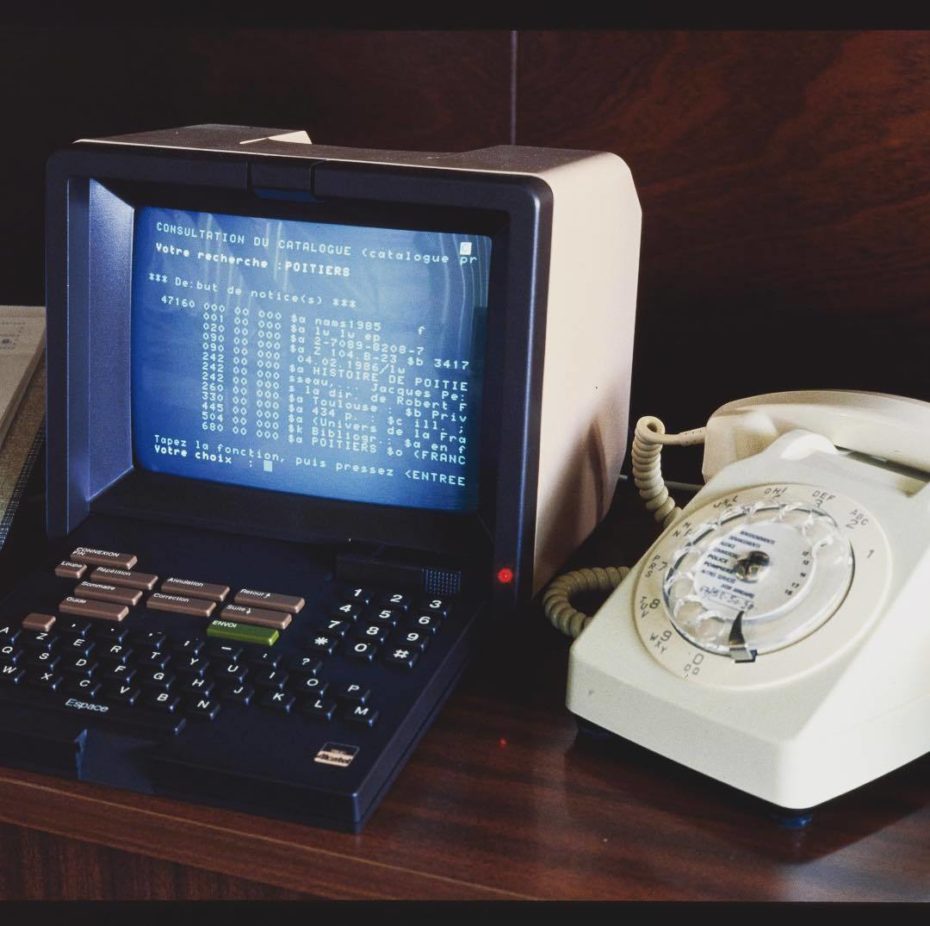
Although Minitel was successful in France, it never took off in other countries. Most of them couldn’t implement the technology because of competitors, and failed to reach an audience broad enough to strengthen the service. A perfect example of this was 101 Online, the American version of Minitel. When France Telecom tried to roll out the service in San Francisco, they were met with market resistance from competitors, closed ecosystems, and fragmented services that required individual subscriptions. 101 Online didn’t stand a chance.
The year 1994 probably marks the early nail in the coffin for Minitel. Considered one of the most important years for internet history, it’s when Microsoft released Windows 95. The easy to use software played a big part in boosting the adoption of online internet services in the average western household. Still, Minitel persisted and its use skyrocketed in France in the 1990s while the rest of the world was getting used to the World Wide Web. Here’s a 1996 commercial pushing a new Minitel terminal…
But then one free CD at at time, American Online (AOL) won and Minitel faded away. The Internet became mainstream, broadband emerged and homes got connected, while Minitel’s dial-up connection and limited terminals ultimately became obsolete.
By the time France Telecom officially terminated Minitel services in June 2012, it no longer provided the telephone directory service it was created for, and only 600,000 homes still used it. It’s said that the only people who actually mourned it when it was gone were French farmers living in remote areas without access to high-speed internet. Minitel was a very closed system which eventually lead to its demise, but it also allowed the post-war generations to understand modern communication technology. French millennials today often find Minitel terminals at their grandparents’ houses, and you can find plenty of the obsolete models across eBay for less than 50 euros.
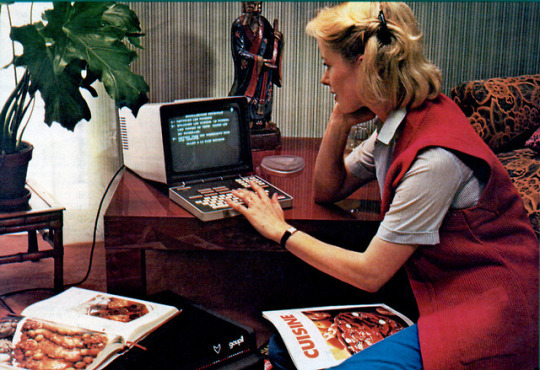
For better or for worse, Minitel gave us a taste of what was to come. It would arguably shape the direction of social content that we now see on the Internet – not to mention, create a number of dependency issues including looking up old flames, incessantly refreshing the news, gaming and engaging in online discussions (or sex) with strangers. One might even say that if someone wanted to invent an addictive online world for the masses, they would only need to have studied the impact of Minitel in France. And there you were thinking it was all just wine, baguettes and joie de vivre.








